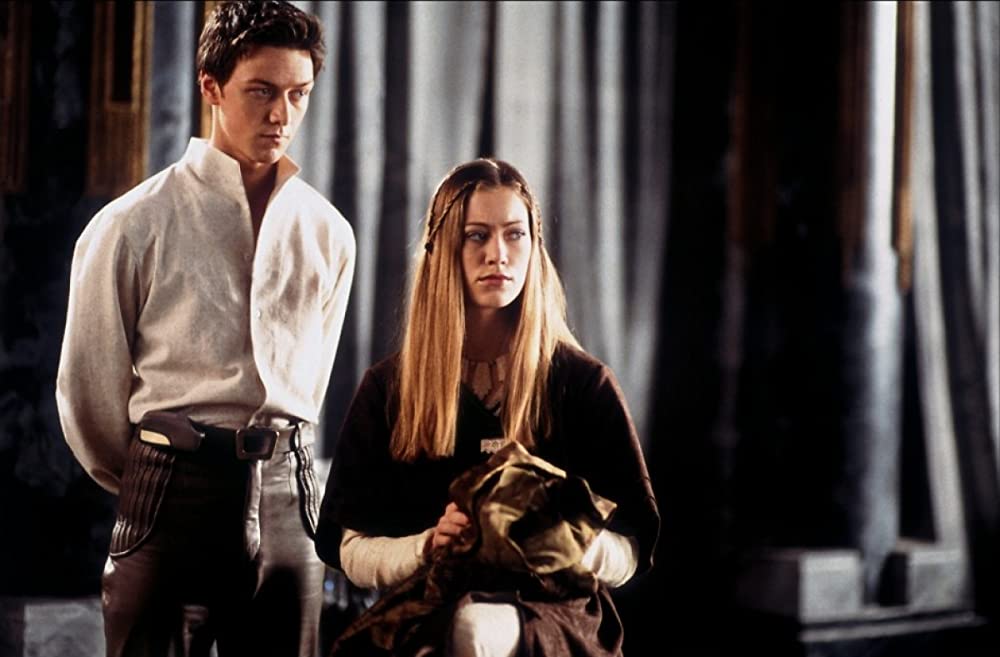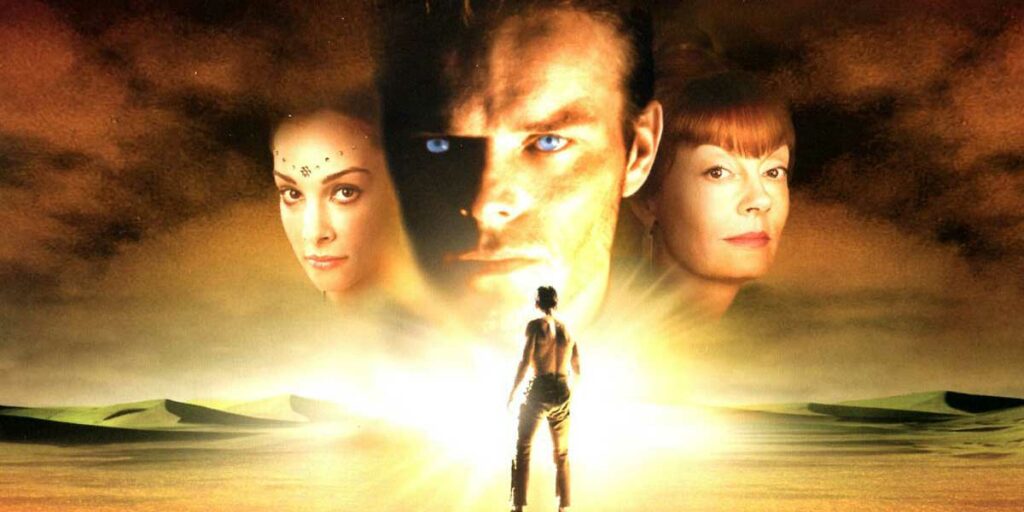Children of Dune successfully adapts the “Dune” sequel novels with a grounded vision and a robust cast, although isn’t quite as compelling as its predecessor.
Welcome to Countdown to Dune! In this five-part series, I will be exploring all the onscreen adaptations of Frank Herbert’s epic science fiction novel “Dune”. As we wait almost a year for Denis Villeneuve’s new adaptation, there is plenty of time to catch up on the previous Dune films and television miniseries. In the first installment of this series, I reviewed David Lynch’s ill-fated 1984 film Dune. Last week, I reviewed the 2000 Sci Fi Channel miniseries Frank Herbert’s Dune, and this week I will explore its 2003 sequel miniseries Children of Dune. Next week, I will review the 2013 documentary Jodorowsky’s Dune and, for the final article in this series, I will share my predictions and thoughts on the new Villeneuve film.
Following the resounding success of Frank Herbert’s Dune in 2000, the series’ creators decided to continue the story and adapt the next two novels in the saga, “Dune Messiah” and “Children of Dune”. Set twelve years after Dune, “Dune Messiah” chronicles Paul Atreides’ rule as the emperor of the universe and his downfall orchestrated by “plots within plots” by his many enemies. “Children of Dune” takes place several years later and follows the ascendancy of Paul’s children Leto and Ghanima, the inner conflicts of Paul’s sister Alia, and the continued political and spiritual turmoil that afflicts Arrakis. Both sequel novels are much shorter than “Dune” and, while nowhere as narratively satisfying and thematically powerful as author Frank Herbert’s original masterpiece, they offer an intriguing continuation of the story by shattering the myth of Muad’Dib and interrogating the infallibility of a heroic figure.
The first episode of the miniseries covers the events of “Dune Messiah“, condensing the novel into an hour and a half onscreen. Only about half as long as “Dune”, Herbert’s second novel reads more like a chamber piece than a proper epic, and is confined mostly to palace drama and stealthy political intrigue. While losing much of the complex plotting and conspiracy that enriches the novel, this brief adaptation retains the essence of the story in an accessible package that won’t be too confusing for the audience. Next, she second and third episodes cover the events of “Children of Dune“, again a judicious adaption that captures the story with enough scope and room to breathe. Fans of the novel might be a bit worried about how the miniseries portrays a pivotal moment from the story featuring a character’s transformation, but I’m happy to report that it treats this twist with justice and doesn’t feel as absurd as the initial idea sounds.

Cox returns as Irulan, again as a much more sympathetic character than in the novel. Sadly, Saskia Reeves does not return as Lady Jessica, but her replacement, Alice Krige, brings a wise maturity to the role that suits the character well. Edward Atterton replaces James Watson as the calculating yet thoughtful Duncan Idaho, whose presence in the earlier miniseries was limited but gets a chance to shine here as the reborn ghola. The only misfire in these replacement performances is Steven Berkoff, whose Stilgar isn’t as assertive as Uwe Ochsenknecht originally was in the role. Most memorable are the new cast members, especially a deliciously Machiavellian Susan Sarandon as Irulan’s sister Wensicia and Daniela Amavia, who grants an older Alia with a divine strength and bewitching spiritual presence. James McAvoy and Jessica Brooks star as Paul’s children Leto and Ghanima, who both forge a deep bond onscreen in playful and sincere moments of dialogue and unspoken gestures of affection.
Children of Dune also takes a different approach aesthetically. Brian Tyler’s score is leagues ahead of Graeme Revell’s subdued efforts in the earlier miniseries, following a similar vocal and instrumental “ethnic” soundscape yet adds bold and triumphant themes that grant the world of “Dune” a sense of welcome scope and nobility. If Frank Herbert’s Dune felt more theatrical with its vibrant color palette and flamboyant production design, the sequel miniseries feels more cinematic with contained hues of brown and yellow, darker and shadowy lighting, and much more dynamic editing including a few powerful montages. It’s a much more mature visual approach that lacks the dynamic visual imagination of its predecessor, but ultimately these aesthetics are an inspired choice as this grounded story is more concerned with confronting the mythic nature of the original Dune story. Unfortunately, the miniseries also suffers a similar problem as its predecessor in its poorly aged visual effects, with sequences like a sandworm heist and establishing shots of the Atreides palace on Arrakis that drastically stand out against the live action elements. Also disappointing are the blue eye effects, which are reduced to only the iris, and lack the otherworldly ambience of this crucial worldbuilding detail.
Ultimately, Children of Dune lacks the narrative brilliance and grandeur of its predecessor, and some viewers might find the story’s smaller scope less compelling. Apart from a couple brief action sequences and fantastical worldbuilding, “Dune Messiah” and “Children of Dune” are not as are not as traditionally cinematic as “Dune”, and perhaps “unfilmable” in conventional terms, but screenwriter John Harrison and director Greg Yaitanes deserve much credit for successfully adapting these two novels to the screen and preserving the essential components of their respective stories. However, fans of the novels will be much satisfied with this miniseries, especially the robust, confident performances that create a deep, organic sense of character that adds emotional depth to the drama onscreen and breathes life into the world of “Dune”.

